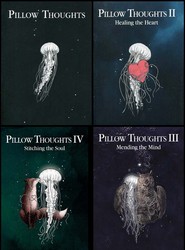If not familiar with the name “Joe Keery,” then familiarity is sure to be had with the charming character of “Steve Harrington” in the Netflix original thriller, “Stranger Things.” Witty, attractive, and with an arc like no other, Steve has captured the hearts of thousands, to the point where fans promised not to continue watching if he died in the newest season. Nonetheless, under the beloved fictional character lies a very real person; one who has started to gain traction through another medium—music. Keery, under the pseudonym Djo (pronounced as “Joe”), has just released his sophomore studio album, “DECIDE.” Filled with psychedelic rock and cinematic pop synth tracks, “DECIDE” could serve as its own soundtrack to the 80s-themed show.
Before the release of his new album on Sept. 16, Djo proved to have a number of streaming hits from his debut album, “TWENTYTWENTY.” Songs such as “Chateau (Feel Alright)” and “Roddy” (the lead single for “TWENTYTWENTY”) have each garnered tens of millions of streams on Spotify, making the expectations for DECIDE that much higher. And Djo didn’t fail to deliver.
“Change,” the leading single for this album, set the precedent for what would be to follow; themes of change, as the title suggests, as well as coping, betrayal, and overconsumption pervade the album, creating an all-inclusive experience of the recent years that anybody can relate to. The opener, “Runner,” additionally sets the stage for the remainder of “DECIDE,” as a repetitive chant of “People never change / But I have to try” runs for the majority of the song’s first two minutes. Despite the assumed monotony, Djo knows exactly how to keep the listener engaged—melodic variations with each reiteration, vocal overlays, as well as the overlap of instrumental melodies create depth within the song, causing something new to be picked up with each listen. This idea isn’t unique to “Runner,” however—musical complexity is Djo’s specialty.
After “Runner,” the sophomore single of “Gloom” seamlessly transitions in, with an unmistakable powerful bass drive. Djo is nothing if not an expert at vocal overlays, knowing exactly when and how to layer vocal harmonies in order to make a phrase pop. This is seen throughout “Gloom,” which recounts the unfavorable and frustrating end to a friendship. Off the bat, there are various vocal differences from that of “TWENTYTWENTY,” as the listener now hears the true extent of Djo’s vocal talent. This is seen in the next song, “Half Life,” where we hear more of a strong chest voice as opposed to the more common falsetto sound used in “TWENTYTWENTY.” Through the Tame Impala-inspired synths and heavy bass, the song also touches on the idea of an internet-driven society, where being “plugged in” results in the inability to live a full life. This theme is again common in the “Strawberry Fields Forever”-esque “On and On,” where the lines, “Your family is in our thoughts / Our heart goes out to you / Say a prayer, light a digital candle and then scroll away” speak clearly about desensitization and dissociation that occur within today’s society.
Regardless of the more depressing subject matters, Djo allows the listener to be able to dance the troubles away. “End of Beginning” hums with an underlying guitar while woes about changing from who you once were are sung, and “I Want Your Video” intoxicates with its bass melody. Synths and a head-bopping drum rhythm solidify “Climax,” even with its use of uneasy vocal distortions. The remaining tracks are no different, with the closer “Slither” rounding the album out by mimicking a similar use of repetitive phrases as seen in “Runner.” It’s a very full-circle moment.
Overall, Djo’s influences are incredibly 80s—think Genesis, ELO, and even the likes of Cyndi Lauper. Synths are heavily present, creating a vibe not unlike that of the Stranger Things series—”DECIDE” is cinematic and reminiscent of yesteryears enough to fit itself right in. It’s unknown whether Keery’s involvement and connection with his character have anything to do with his musical aura, but, regardless, Djo and Keery—though two halves of the same coin—are too distinct so as not to confuse the two. “DECIDE” is a retro-inspired masterpiece of the modern era, even topping its predecessor in the process. If the trend continues, we can expect even greater from Djo’s third.




